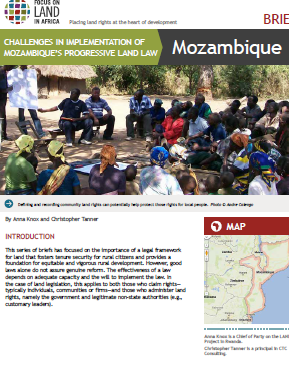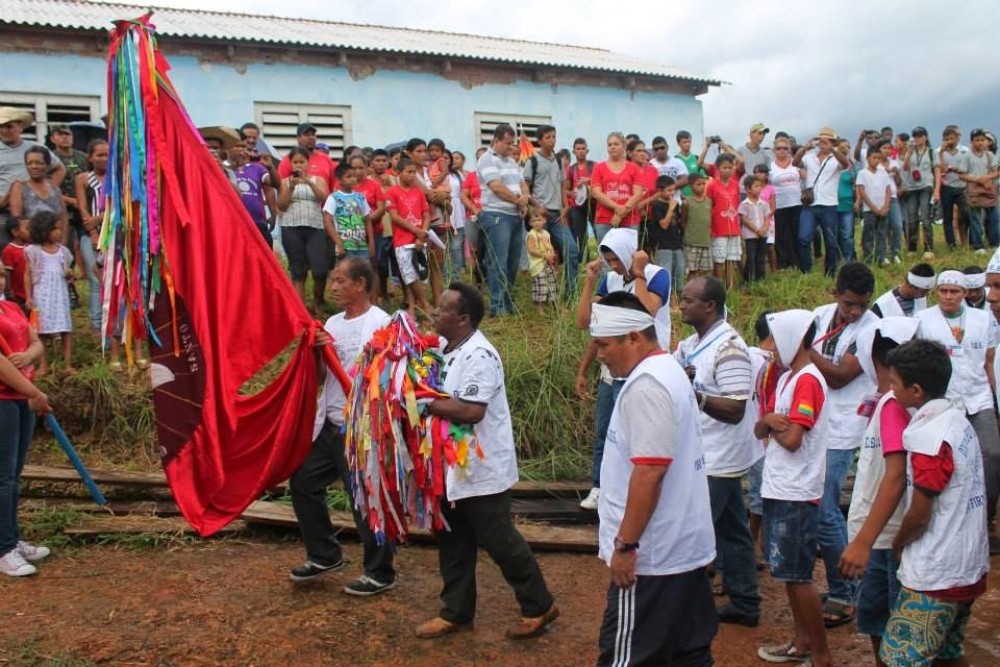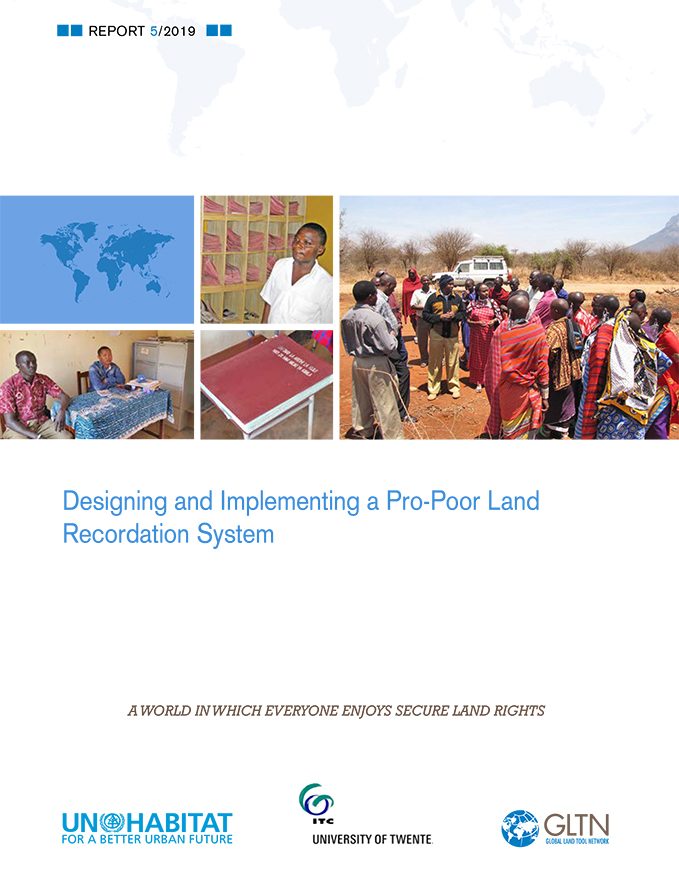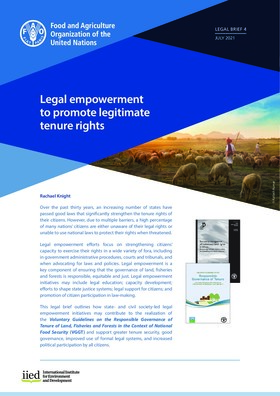Challengs in Mozambique In Implamatation of Mozambique's progressie land Law
This series of briefs has focused on the importance of a legal framework
for land that fosters tenure security for rural citizens and provides a foundation forv equitable and vigorous rural development. However, good laws alone do not assure genuine reform. The effectiveness of a law depends on adequate capacity and the will to implement the law. In the case of land legislation, this applies to both those who claim rights— typically individuals, communities or firms—and those who administer land rights, namely the government and and legitimate non-state authorities (e.g.,








